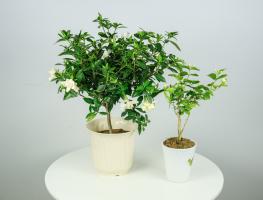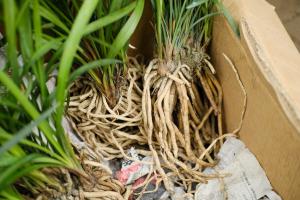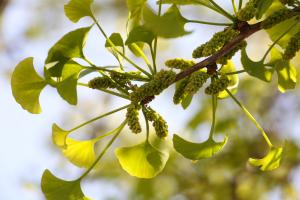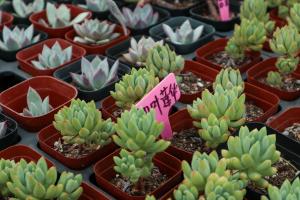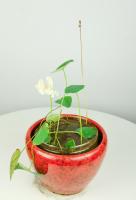Introduction
When it comes to outdoor gardening, finding the right container for your plants can be a daunting task. Plastic pots are a popular choice for many gardeners due to their affordability and versatility. However, some people may wonder if plastic pots are the ideal choice for outdoor plants. In this article, we will explore the pros and cons of using plastic pots for outdoor gardening.
The Advantages of Plastic Pots for Outdoor Plants
Plastic pots are lightweight, making them easy to move around and rearrange in your garden. They are also durable and long-lasting, with the ability to withstand harsh weather conditions like rain, snow, and even extreme heat. Plastic pots also come in a wide variety of colors and sizes, making it easy to find the perfect pot to fit your plant and enhance the aesthetics of your garden. Additionally, plastic pots are less likely to break if they are accidentally dropped or knocked over, which can be a common occurrence in outdoor gardening.
The Disadvantages of Plastic Pots for Outdoor Plants
While plastic pots have many advantages, there are some drawbacks to consider as well. One of the main concerns with plastic pots is that they can retain more heat than other types of containers, potentially overheating your plants and causing damage to their roots. Additionally, plastic pots do not allow for much airflow around the roots of your plant, which can lead to problems with overwatering and poor drainage. Finally, plastic pots are not as environmentally friendly as other types of containers, as they are not biodegradable and can take hundreds of years to decompose.
Tips for Using Plastic Pots Effectively in Outdoor Gardening
To maximize the benefits of plastic pots and minimize their disadvantages, there are a few tips and tricks to keep in mind. First, choose light-colored plastic pots to reflect the heat of the sun and avoid overheating your plants. Second, make sure you have adequate drainage holes in your plastic pots to allow excess water to escape and promote healthy roots. Finally, keep an eye on your plants in plastic pots during hot weather and adjust their watering schedule as needed to avoid overwatering and potential root rot.
Conclusion
In summary, plastic pots can be a great choice for outdoor plants due to their affordability, versatility, and durability. However, it is important to be aware of their potential drawbacks, such as heat retention and poor drainage. By following a few simple guidelines, plastic pots can be an effective and convenient option for gardeners looking to enhance their outdoor space with greenery.

 how many times do yo...
how many times do yo... how many planted tre...
how many planted tre... how many pine trees ...
how many pine trees ... how many pecan trees...
how many pecan trees... how many plants comp...
how many plants comp... how many plants can ...
how many plants can ... how many plants and ...
how many plants and ... how many pepper plan...
how many pepper plan...